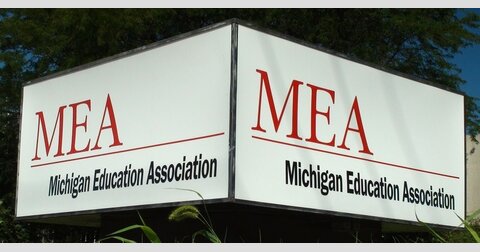Teachers Union Membership Down 20 Percent, But Executive's Pay up $61,000
Union officer's pay hikes also part of school pension-spiking scheme
A top official at the state’s largest teachers union has received another substantial raise, his second in three years. Despite plunging membership at the Michigan Education Association, Secretary-Treasurer Rick Trainor was given a nearly $20,000 pay raise in 2016.
Trainor’s salary was $171,206 in 2016, up from $151,675 in 2015 — a 12.8 percent raise, according to documents filed with the U.S. Department of Labor. Trainor took a 44 percent raise between 2013 and 2014, from $109,911 to $158,296.
The union official is now collecting $61,295 more each year than he did in 2013. (The average salary for public school teachers in Michigan in 2015 was $61,978.)
As Michigan Capitol Confidential previously reported, Trainor is still carried on a school district’s payroll, so the pay hikes also increase his eventual payouts from the state-run school pension system. Trainor previously taught in Mt. Pleasant Public Schools for 21 years, and under the pension-spiking scheme he's still considered an employee there despite leaving the district in 2011 to work full time for the MEA.
The school district says it is reimbursed by the union for Trainor’s pay, but taxpayers will probably have to cover the extra pension benefits his higher salary levels will generate.
The Michigan Senate passed a bill in the 2015-16 legislative year to ban the scheme that has also been implemented by other MEA officials, but the Republican-controlled House failed to follow through and the bill died.
The MEA did not respond to questions regarding Trainor’s most recent salary increase.
While Trainor’s pay soared over the past three years, union membership has plummeted. In 2013, the year Michigan’s new right-to-work law went into effect, the MEA’s membership was 113,147. In 2014, the union had 107,868 members, which slumped to 94,559 members in 2015 and 90,609 in 2016 — a cumulative decline of 19.9 percent.
In 2014, the MEA disputed Michigan Capitol Confidential’s news account that Trainor received a 44 percent salary hike that year. In a Facebook post, it said the matter was “a billing issue from his employing district.”
“Another wrinkle has to do with the Secretary-Treasurer’s increase of 44% as reported by the Mackinac Center,” the union said. “First, he did not receive such an increase. The problem is a billing issue from his employing district.” The MEA at the time did not respond to a request for comment.
Trainor’s total compensation, which includes business expenses and other various reimbursements, was $210,216 in 2016.
Michigan Capitol Confidential is the news source produced by the Mackinac Center for Public Policy. Michigan Capitol Confidential reports with a free-market news perspective.


 MEA head boasts of membership growth, but numbers tell a different story
MEA head boasts of membership growth, but numbers tell a different story
 Paraprofessional in Traverse City gets MEA decertified and replaced
Paraprofessional in Traverse City gets MEA decertified and replaced
 Michigan Education Association is down 37,000 members in a decade
Michigan Education Association is down 37,000 members in a decade

 Detroit schools spend $196M of COVID cash on teachers, $34M on student mental health
Detroit schools spend $196M of COVID cash on teachers, $34M on student mental health
 Detroit charter network up for $1 million award
Detroit charter network up for $1 million award
 In Detroit schools, nothing succeeds like failure
In Detroit schools, nothing succeeds like failure